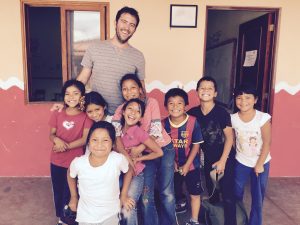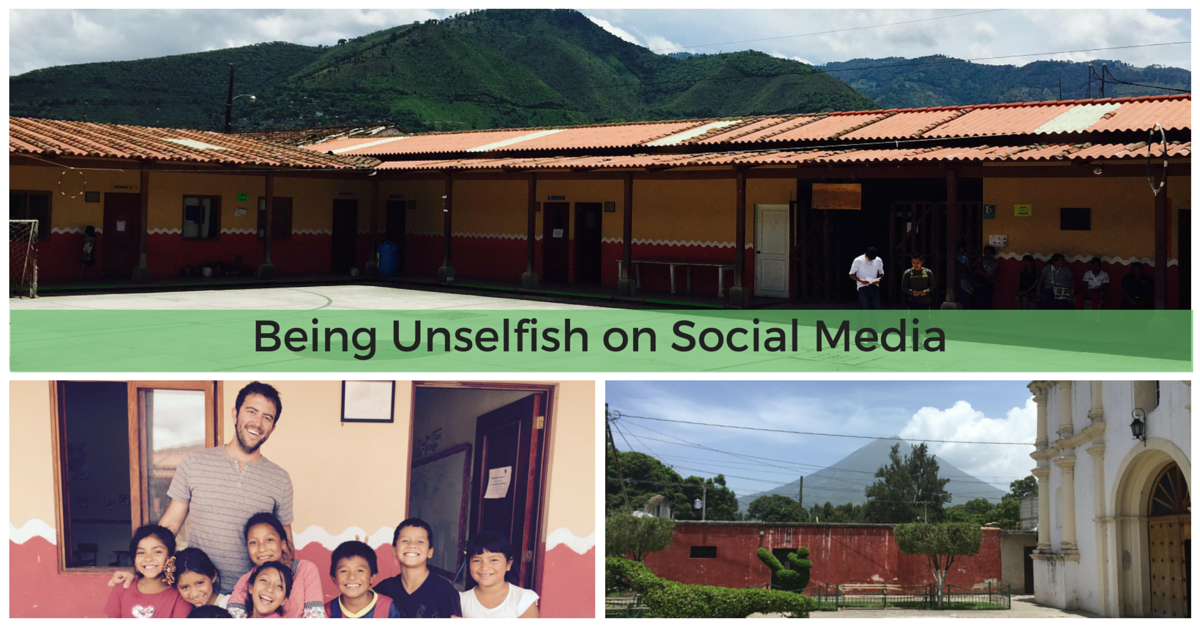Clownfish, Reciprocal Altruism, and How Guatemala Taught Me About Social Media.
About 9 months ago, I visited Guatemala. It’s probably one of the most beautiful places I’ve ever been to.
And it was filled with crushing poverty. The kind of poverty you see on television—the kind where they try to get you to donate, “Just a few dollars a month.”
It was… eye-opening. It’s easy to avoid here—it’s everywhere down there.
I went there to work at a school for free—I saw it as a chance to travel somewhere I’d never go to otherwise, and I leapt at it.
Looking back, it’s very strange—I know that I went for selfish reasons, but while I was there, I know I was able to be helpful and do something unselfish by working with those kids.

And this strange thing happened—both the place I volunteered at (Education for the Children, a place you really need to learn more about) and I benefitted.
It’s strange to me because we were both, technically, being selfish.
I got to stay in Guatemala for two weeks at incredibly low prices, eat amazing food, and go on a few awesome excursions for relatively nothing.
They got free labor — I was able to sub for one of their teachers so that the teacher could participate in continuing education. The kids benefitted, too: they were able to get away with a lot more while I was in charge. I’m gonna count that as a good thing.
Anyway, we both benefitted—win/win. By helping each other, we both came out much farther ahead than had we tried to do things on our own.
It struck me recently that social media is the exact same way.
Reciprocal Altruism—What We Can Learn from Biology
In biology, there’s this term called reciprocal altruism.
Basically, it’s where one organism helps another in a way that might actually reduce its ability to survive. However, it does this with an expectation that the favor will be returned—the other organism is going to help it out at some point.
Still, this is a bit inaccurate—the unselfish action doesn’t so much reduce the helpful organism’s ability to survive as take the place of a more selfish action.

The relationship between the clownfish and sea anemones is a perfect example of this. The clownfish eats parasites that would hurt the sea anemone, and, when danger comes, the sea anemone protects the clownfish.
The clownfish doesn’t have to eat those parasites—it could eat something else, something found elsewhere, in greater abundance, something with higher nutritional value. It’s time might be better spent elsewhere.
But that long-term relationship matters to the clownfish, because without it, when the sea chips are down, the clownfish is SOL without the sea anemone.
We Do the Same Thing in Social Media
Social media is all about being social—forming relationships, talking to people, becoming a part of their lives.
And that means sharing their content, spreading the word about them and their business, letting people read their stuff.
It costs me little to share their content.
But.
Every time I share their content, it takes the place of my own content—I can only share so many times each day, each week, and each month without looking like an absolute crazy person.
And, depending on the ratio (we follow the 80/20 rule) I’ve set myself, I might have few chances to share.
So, it still costs me something. It costs me the ability to do something which might more directly benefit me.
So Why do I do It (Other than to Break Up the Incredible Boringness of Someone Who only Posts their own Stuff)?
Because I know the favor will be returned.
Because reciprocal altruism.
I scratch your back, you scratch mine.
But it’s more than that—I do it because it’s the right thing to do. Because that’s what friends do for each other. Because I know in my heart that doing the right thing, regardless of whether or not I’ll be rewarded, is intrinsically rewarding.

I know we’re talking about social media, I know it’s easy to say, “Do the ‘right thing’ on social media? Don’t make me laugh!” But I’m quite serious, and those of us who do this for a living know what I’m talking about. There is very much a right or wrong—these are real communities with real people, and what we do here matters when we go back out there.
And generally, it works pretty well—and my content gets shared to followers I would otherwise never reach.
We have friends, Romans, countrymen who have become our very close friends—people like Carol Stephen, who constantly shares our content (even when I don’t always share hers), people like Robert Nissenbaum, who came out of nowhere and became one of our most engaged friends.
And people like Bridget Willard, someone so awesome she let me write a post here. ;)
Do you know what the biggest thing is I’ve gained from doing this?
Friendships. And all I had to do was share a few posts every now and then.
That’s one hell of an ROI.


